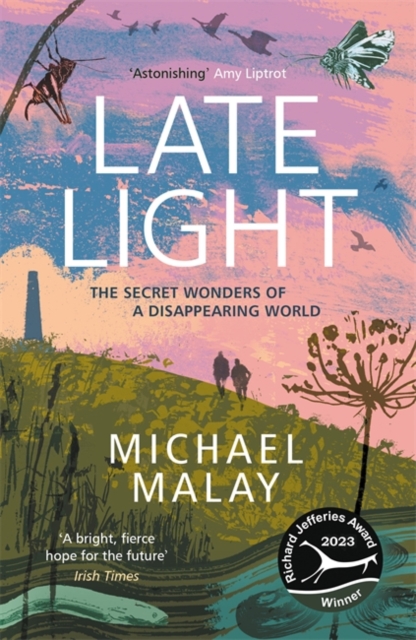
I very much looked forward to reading this book, as I’d been impressed, five years earlier, by a reading given by the author from an early draft of one of its chapters at a Caught by the River event in Todmorden. I chatted briefly with Michael Malay afterwards, nerdishly taking the opportunity to point out the connection between his beloved River Severn and my personal hero, Charles Darwin, whose birthplace in Shrewsbury sits on its banks. (As I keep insisting to anyone who will listen, everything has a Darwin connection.)
I’m glad to say, Late Light did not disappoint. It performs the valuable service of celebrating four uncharismatic, threatened British animal species—eels, moths, freshwater mussels and crickets—and the people who love, study and try to conserve them. As Kathleen Jamie remarks in her wonderful book Sightlines, nature is ‘not all primroses and otters’. If wildlife is to stand any sort of chance in our severely depleted ‘green and pleasant land’, we need to start putting in a word for what Malay, in a useful turn of phrase, refers to as the edge species: ‘animals who exist on the margins of our attention, and who consequently struggle to find a place in our hearts’.
Malay does not, however, confine his writing to the individual edge species in question; he rightly describes the important roles each has to play in its local ecosystems, and the destruction that has been wrought on those ecosystems by our own voracious species. Here he is, for example, writing about the draining of much of the island of Great Britain in the name of land improvement:
Centuries of human activity have profoundly altered most of these places. Across Britain, lakes and pools have been emptied, marshes and fens reclaimed, fields embanked, and a vast network of ditches scored into the land to send water back to river or sea. Formerly the largest lake in Southern England, Whittlesea mere is now flat farmland, while the ‘fenways fearful’ described by the bard of Beowulf are farmed for beets and potatoes.
Being a relative newcomer to the UK (he was raised in Indonesia and Australia), Malay brings an interesting ‘outsider’s’ perspective to traditional British nature writing—albeit from an outsider who has clearly come to love his adoptive country and its wildlife. I very much look forward to reading his next book.
Note: A few days after I finished reading this book, it won the 2024 Wainwright Prize for nature writing.
- Buy this book from Bookshop.org (UK) and help tax-paying, independent bookshops.
- Buy this book from Amazon.co.uk
- Buy this book from Amazon.com

Leave a Reply